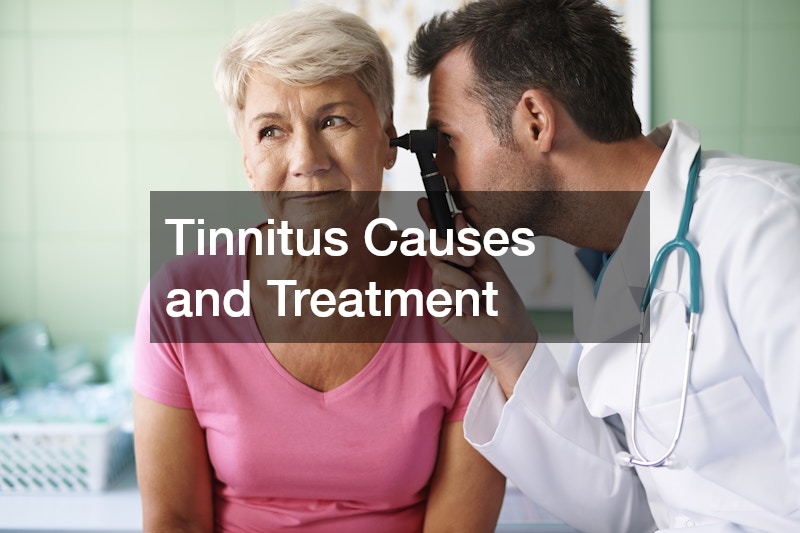
Tinnitus is a condition characterized by the perception of noise or ringing in the ears, a problem that affects millions of people worldwide. It is not a disease in itself, but rather a symptom of an underlying condition, such as age-related hearing loss, ear injury, or a circulatory system disorder. Understanding tinnitus, its causes, symptoms, and treatment options can help manage this often disruptive condition. In this article, we will delve into the details of tinnitus, explore how it impacts individuals, and highlight the importance of seeking help from a tinnitus clinic & specialists.
Understanding Tinnitus
Tinnitus is often described as a ringing, buzzing, hissing, or whistling sound in the ears that only the affected person can hear. These sounds can vary in pitch and may be present in one or both ears.
Tinnitus can be constant or intermittent, and its intensity can range from a slight annoyance to a debilitating condition that significantly impacts daily life.
Causes of Tinnitus
Tinnitus can result from various underlying causes. Some of the most common include:
Hearing Loss: Age-related hearing loss, also known as presbycusis, is a common cause of tinnitus. As people age, the delicate hair cells in the inner ear that help transmit sound signals to the brain can become damaged or deteriorate, leading to tinnitus.
Exposure to Loud Noise: Prolonged exposure to loud noises, such as music concerts, machinery, or firearms, can damage the hair cells in the inner ear, resulting in tinnitus.
Ear Infections or Blockages: Ear infections, excessive earwax, and blockages in the ear canal can cause tinnitus. These issues can create pressure and alter the normal functioning of the ear, leading to the perception of noise.
Head or Neck Injuries: Trauma to the head or neck can affect the auditory nerves, ear structures, or brain functions linked to hearing, causing tinnitus.
Medications: Certain medications, such as nonsteroidal anti-inflammatory drugs (NSAIDs), antibiotics, and some cancer treatments, can have side effects that include tinnitus.
Underlying Health Conditions: Tinnitus can be associated with conditions such as high blood pressure, cardiovascular disease, diabetes, and thyroid problems.
Symptoms of Tinnitus
The primary symptom of tinnitus is the perception of noise in the ears that has no external source. This noise can take various forms, including ringing, buzzing, hissing, clicking, or roaring. Tinnitus can also be accompanied by other symptoms, such as:
Difficulty Concentrating: The persistent noise can make it hard to focus on tasks or conversations.
Sleep Disturbances: Many individuals with tinnitus struggle to fall asleep or stay asleep due to the constant noise.
Emotional Distress: Tinnitus can lead to feelings of frustration, anxiety, and depression, especially if it significantly impacts one’s quality of life.
Hearing Loss: In some cases, tinnitus is associated with hearing loss, making it difficult to hear external sounds clearly.
Diagnosis and Treatment
If you experience tinnitus, it is essential to seek professional help from a tinnitus clinic & specialists. An ear, nose, and throat (EENT) specialist or audiologist can perform a comprehensive evaluation to determine the underlying cause of your tinnitus. This evaluation may include a hearing test, imaging studies, and a review of your medical history.
Once the cause of tinnitus is identified, the specialist can recommend appropriate treatment options. While there is no cure for tinnitus, various treatments can help manage the symptoms and improve quality of life. These treatments include:
Sound Therapy: This involves using external sounds to mask or distract from the tinnitus. White noise machines, hearing aids, and specialized sound generators can be effective.
Cognitive Behavioral Therapy (CBT): CBT is a type of counseling that helps individuals change their perception of tinnitus and reduce the emotional distress associated with it.
Medications: Certain medications, such as antidepressants and antianxiety drugs, can help alleviate the emotional impact of tinnitus and improve sleep.
Hearing Aids: If tinnitus is associated with hearing loss, hearing aids can amplify external sounds and make the tinnitus less noticeable.
Tinnitus Retraining Therapy (TRT): TRT combines sound therapy and counseling to help individuals habituate to tinnitus and reduce its impact on daily life.
Preventing Tinnitus
While not all cases of tinnitus can be prevented, there are steps you can take to reduce your risk:
Protect Your Ears: Use ear protection, such as earplugs or earmuffs, when exposed to loud noises, such as concerts, machinery, or firearms.
Limit Exposure to Loud Sounds: Avoid prolonged exposure to loud music or environments with high noise levels.
Maintain Cardiovascular Health: Managing conditions such as high blood pressure, diabetes, and high cholesterol can reduce the risk of tinnitus.
Avoid Ototoxic Medications: If possible, avoid medications known to have tinnitus as a side effect. Consult your doctor for alternatives.
Conclusion
Tinnitus is a common condition that can significantly impact an individual’s quality of life. Understanding the causes, symptoms, and treatment options is crucial for managing this condition effectively. If you or someone you know experiences tinnitus, seeking help from a tinnitus clinic & specialists can provide valuable support and guidance. By taking preventive measures and exploring available treatments, you can reduce the impact of tinnitus and improve your overall well-being.
.




